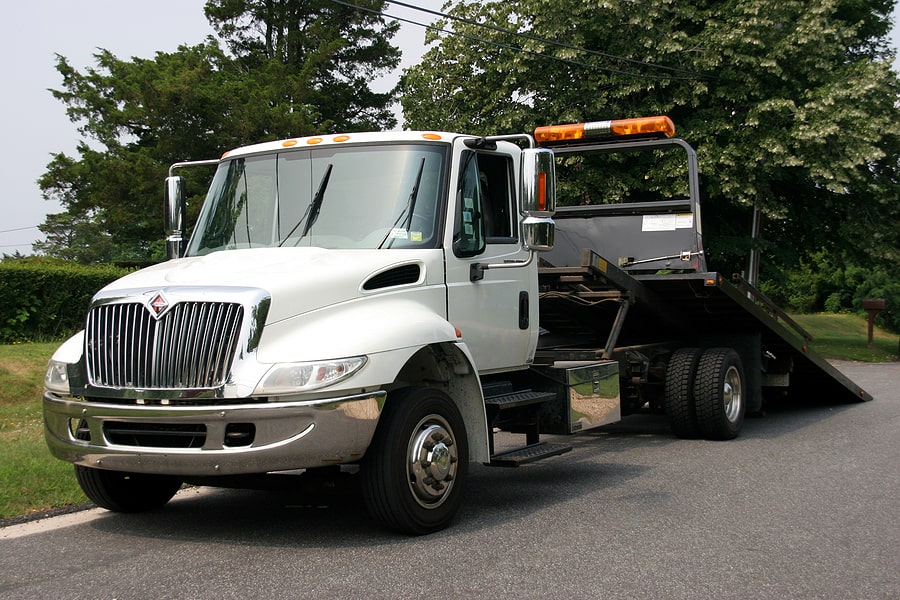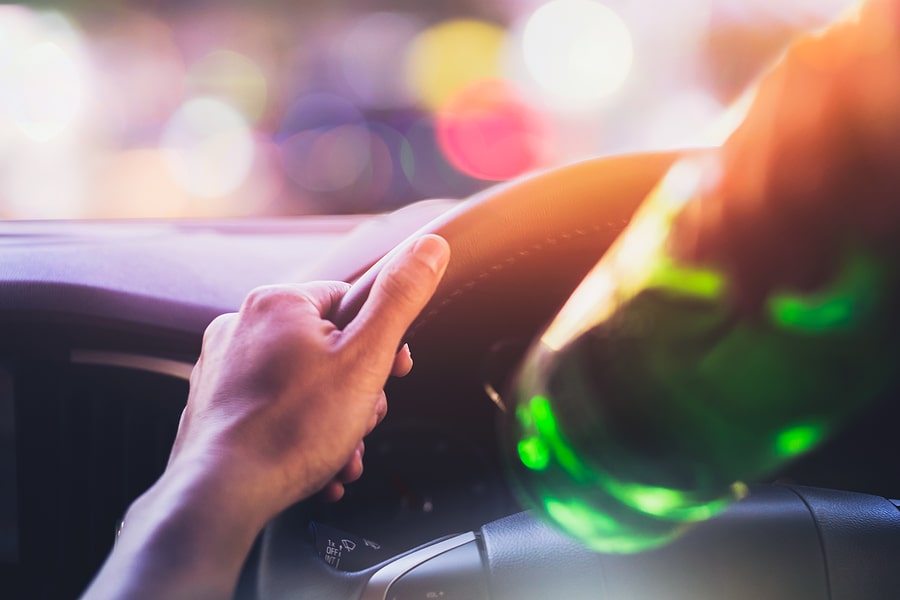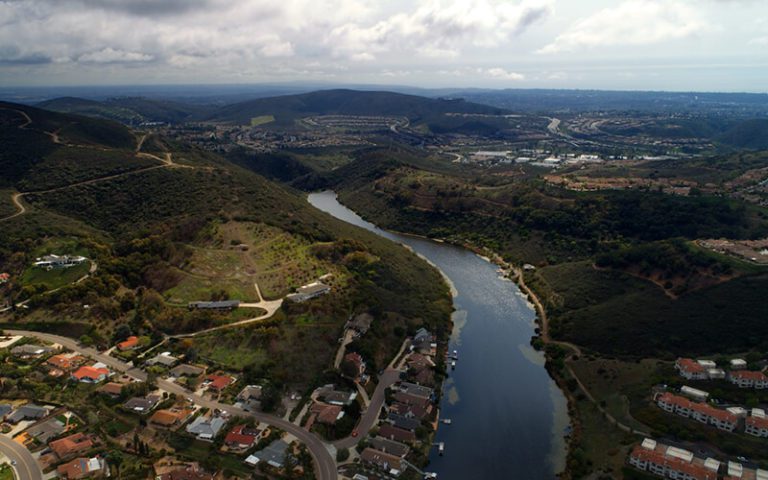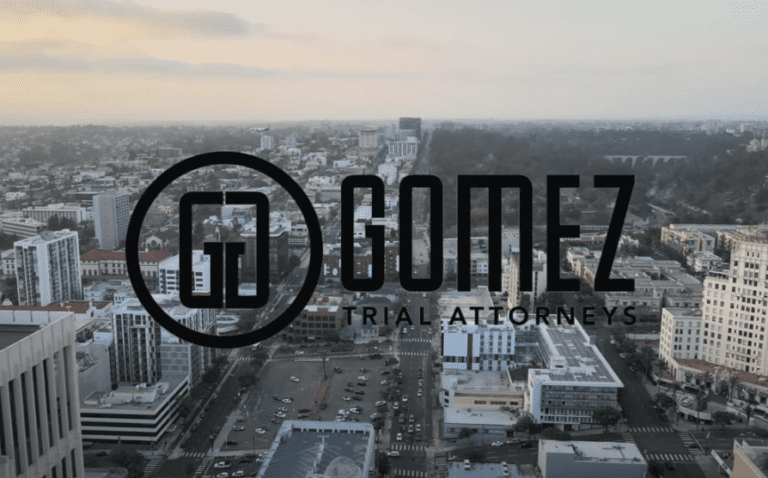 When you find yourself stranded by the side of the road, in a parking lot, or after an accident that causes severe damage to your vehicle, the arrival of a tow truck can be an enormous relief. Thanks to the tow truck, you can safely move your vehicle to a new location, get it out of the road, and no longer have to worry about another accident.
When you find yourself stranded by the side of the road, in a parking lot, or after an accident that causes severe damage to your vehicle, the arrival of a tow truck can be an enormous relief. Thanks to the tow truck, you can safely move your vehicle to a new location, get it out of the road, and no longer have to worry about another accident.
An accident involving a tow truck, on the other hand, can mean serious problems.
A tow truck on its own weighs a great deal more than most passenger vehicles. Add the weight of the vehicle it’s towing and you may find yourself in a very dangerous situation. Tow trucks, like other big trucks, take longer than passenger vehicles to change speed, whether they’re speeding up or trying to come to a stop. Tow trucks also require more room to maneuver than smaller passenger vehicles and have much larger blind spots. All of these things raise the risk of accidents.
Many additional factors can contribute to both tow truck accidents and their severity. Some of them, you can do things to avoid. In other cases, however, you simply need to stay alert on the road and do what you can to be proactive in response to other drivers’ actions. If you are involved in an accident, a truck accident attorney can help you seek the compensation you deserve.
Factor #1: Driver Fatigue
Accidents occur at all hours of the day and night. 51 percent of fatalities in car accidents occur during the day and 49 percent at night. This is because there are fewer drivers on the road at night. It’s worth remembering that nighttime driving presents particular challenges.
Tow truck drivers must respond to accidents and other hazards at all hours. As a result, tow truck drivers may suffer from fatigue out on the road. Sometimes, they get called out of their beds to address towing needs. Other times, they may have to handle a tow at the end of their shift when they are tired after a long day.
Fatigued drivers can experience symptoms much like inebriated drivers on the road. They can suffer from disorientation, tunnel vision, and trouble with response times and reflexes. Fatigued drivers may drift off behind the wheel. In a tow truck, that creates an enormous hazard since tow trucks have a greater weight and take up more room on the road than smaller passenger vehicles. Fatigued drivers may also struggle to safely control the vehicle or mistakenly violate the rules of the road; swerving into traffic or missing stop signs, for example. In addition, fatigued drivers may be more likely to speed to get to their destination faster.
Factor #2: Improperly Secured Cargo
Tow trucks secure cargo in several different ways. Some tow trucks load the cars they pull onto a flatbed, where the car is secured to prevent it from moving during transit. Other tow trucks may tow the vehicle with a hook placed under the car’s bumper and a chain to attach it to the tow truck. Still others may use a wheel lift method to secure the vehicle’s front wheels, dragging the towed vehicle behind the tow truck on its rear wheels.
Unfortunately, all of these methods, especially hook and chain towing, have a high potential for error. With all towing methods, if the towed vehicle is not properly secured, it can come loose. This can mean a vehicle rolling down the road with no one to control it.
Improperly secured vehicles may crash into other vehicles, pedestrians, or cyclists on the road, causing severe injury. With no one inside, there is nothing to alleviate the severity of the accident. Drivers who see an improperly secured vehicle coming their way can only try to get out of the way and hope for the best.
Factor #3: Faulty Equipment and Mechanical Failure
Tow trucks, like other large vehicles, require regular maintenance to keep them running smoothly out on the road. Unfortunately, faulty equipment can substantially increase the risk of an accident. Tow trucks transport heavy vehicles. In some cases, the towed vehicle may even weigh more than the tow truck. Under-inflated tires or tires with a pinpoint hole can lead to a tire blowout accident when the tow truck is loaded with a heavy vehicle or hits a pothole. Brake failure can prevent the tow truck from stopping safely, while transmission problems can make it impossible for the driver to control the tow truck.
Tow trucks also have more equipment than standard passenger vehicles. Tow truck owners must take care of critical vehicle maintenance, including maintaining the towing mechanism, to keep others on the road with them as safe as possible.
Factor #4: Improperly Trained Drivers
Driver training can make a huge difference in many accident scenarios. Unfortunately, many towing companies offer only cursory training. Some drivers need only prove that they can handle the truck, then receive little information about how to handle the towing mechanism or otherwise ensure safety on the road.
Poorly-trained drivers may not know how to properly secure vehicles when they tow them or they might lack the skills needed to operate the tow truck safely in heavy traffic. Drivers with inadequate training may also be more likely to panic when a dangerous scenario arises, increasing the likelihood that they will make a mistake that leads to an accident.
Factor #5: Blind Spots
Tow trucks, like other big trucks, often have large blind spots. For tow truck drivers, those blind spots can be particularly dangerous because they often vary depending on the size of the vehicle being towed. As a result, even experienced tow truck drivers may have some trouble accurately determining the location of other vehicles around it.
Tow truck drivers often must maneuver carefully and pay close attention to other vehicles around them to reduce the risk of a severe accident. Some modern tow trucks come equipped with external cameras that can make it easier for tow truck drivers to see what is happening around them. These cameras, however, do not come on every vehicle. Inexperienced tow truck drivers may also have trouble judging distance on a camera, which can increase the risk of an accident even if they use the cameras to the best of their ability.
Factor #6: Excessive Towing Weights
Sometimes, tow trucks and other large vehicles break down, too. Even tow trucks may occasionally need a tow to a new destination, especially if they suffer an engine breakdown or get stuck.
Large vehicles are more difficult to tow than smaller ones. Not only do they take up more space, increasing the odds that the tow truck driver can’t clearly see around them, large vehicles generally put more stress on the tow truck’s engine. Very large vehicles may also not fit well on the tow truck, which can increase the risk that improperly secured cargo will fall from the vehicle.
Tow truck drivers must know their truck’s weight limits for towing and carefully evaluate whether they can safely transport another vehicle. If they can’t, they may need to recommend another towing company or contact someone else to come aid in moving the stranded vehicle. Unfortunately, some tow truck drivers do not want to miss out on the money that would come with the tow. Others may worry about leaving a customer waiting any longer than necessary. They may attempt to move the stranded vehicle at least a short distance despite knowing that they cannot safely complete the tow.
Factor #7: Drinking and Driving
 In small cities with few residents and tow truck services, in particular, tow truck drivers may need to be “on” a large percentage of the time. Sometimes, that may mean that the tow truck driver gets called even when they have other plans already in mind for the day, including drinking with friends or family members. Unfortunately, this can lead to tow truck drivers choosing to drink and drive, especially around holidays and other celebratory occasions.
In small cities with few residents and tow truck services, in particular, tow truck drivers may need to be “on” a large percentage of the time. Sometimes, that may mean that the tow truck driver gets called even when they have other plans already in mind for the day, including drinking with friends or family members. Unfortunately, this can lead to tow truck drivers choosing to drink and drive, especially around holidays and other celebratory occasions.
Drunk driving causes an average of 30 deaths in the United States each day. Drunk drivers often struggle to control their vehicles safely, especially when they must navigate the road in large, clunky vehicles like tow trucks. Some drunk drivers may be inclined to drive recklessly, especially if they want to rush through the tow to get back to their previous activities. Others may choose to drive extremely slowly to appear sober, which can make it more difficult for other drivers to predict their behavior.
Drunk drivers, including tow truck drivers, may drive erratically or unpredictably. They may have decreased motor control and slowed reflexes, which means that if an accident does occur or start to occur, they can’t easily prevent it or do something to decrease the severity. Drunk drivers may also struggle with tunnel vision or trouble keeping track of other vehicles around them. This can be particularly dangerous given a tow truck’s large blind spots.
Factor #8: Driving Excessive Hours
Tow truck drivers must have a commercial driver’s license to operate a tow truck safely. That means that they must adhere to federal regulations that restrict truck driver behavior, including driving for only 11 hours out of a 14-hour shift and taking adequate time to rest after that shift comes to an end before getting behind the wheel again.
Unfortunately, despite these mandates and regulations, some tow truck drivers spend more hours than they should behind the wheel. Not only can this lead to driver fatigue, it can make it difficult for drivers to focus even if they’re rested enough. As road haze sets in, the tow truck driver may forget what they have hitched up behind their truck or fail to notice the presence of other drivers around them. Long hours at work can decrease the odds that a tow truck driver will safely navigate on the road and raise accident risk.
How Can You Decrease the Odds You Will Face Injuries in an Accident With a Tow Truck?
Often, the factors that contribute to tow truck accidents are beyond the control of other drivers. You cannot, for example, check to make sure that the tow truck next to you properly secured the vehicle they have hooked up behind them, nor can you ensure that the driver has not chosen to drive while fatigued or inebriated. You can, however, significantly decrease your odds of being involved in an accident with a tow truck driver by taking the right steps behind the wheel.
1. Learn how to locate big truck blind spots and avoid them when driving near a tow truck.
Familiarize yourself with the most common blind spots on big trucks, including directly in front, for a good distance behind, and along both sides of the truck. Tow truck drivers can see you more easily on the left side, where the driver sits, than on the right, but the tow truck driver may not have full visibility down the driver’s side of his vehicle, either.
Get used to looking for the driver’s mirrors. If you cannot see the driver in their mirrors, they likely cannot see you. You should take steps to move out of the tow truck driver’s blind spot as soon as possible, even if that means reducing your speed to fall back slightly on the road.
As you become more familiar with blind spots and get used to looking out for them, you may find it easier to stay out of the tow truck driver’s blind spots altogether. When you stay out of blind spots, you ensure that the tow truck driver can see you and reduce the odds of a collision.
2. Pay close attention to the tow truck driver’s behavior.
Any time you get behind the wheel, you can reduce your risk of an accident by paying attention to the other drivers around you. Often, simply noting erratic or dangerous behaviors before the driver commits a more serious error can reduce your odds of becoming involved in a severe accident.
Noting driver behavior is even more crucial when you are sharing the road with a tow truck or other large vehicle.
Watch carefully to see what the tow truck driver does. If they start to drift toward another lane of traffic, especially if they start to drift toward your lane of traffic, you can back off and leave room for them. If you notice that the tow truck seems to speed up and slow down erratically, this could indicate driver distraction, inebriation, or drowsiness, all of which can significantly increase the risk of an accident.
You may want to take another route to avoid the tow truck, pull off and give it time to get well past you, or even call the police and report erratic driving behavior. Keep in mind that you should pull off the road if you decide to report any erratic or dangerous behavior so that your own distraction does not increase the risk of an accident.
3. Keep an eye on the tow truck’s cargo.
The vehicle being towed by the tow truck may naturally move around a little on the road, especially if it is being towed by a hook and chain truck. But the vehicle should not move around significantly, nor should it drift into other lanes. You may observe some minimal vibration or movement, but you should not see extreme movement.
If you notice the towed vehicle shifting erratically on the road, you can reduce the risk of an accident by getting out of the way and, if possible, notifying the tow truck driver that their cargo does not seem properly secured. If you cannot notify the driver, make sure you stay well back. On a highway, you may want to fall several car lengths behind to avoid accident risk. You may also want to pull off and contact the police to notify them of a potential hazard so that they can pull the tow truck driver over and ensure that the driver properly secures the towed vehicle.
4. Give yourself extra time to reach your destination.
This simple tip can significantly reduce your risk of any type of auto accident. All too often, drivers cause accidents because they are in a hurry. You have too little time to reach your destination, so you do not allow a tow truck enough room to maneuver. You need to rush to reach your destination, so you do not have patience while a tow truck driver tries to change lanes, which increases their risk of causing a sideswipe collision as they try to move over.
If you find yourself frequently sharing the road with tow trucks and want to decrease your risk of a collision, try leaving for your destination a little earlier. Knowing that you have plenty of time can make it easier for you to stay calm through traffic and other hazards.
5. Leave plenty of room for tow truck drivers to maneuver.
As you plan to exercise more patience when sharing the road with a tow truck driver, make sure you leave more room for that driver to maneuver. Keep in mind that especially while towing a vehicle, tow truck drivers need more time and room to maneuver than other vehicles. They need more time to slow or stop. They need more time and space to turn.
When sharing the road with a tow truck, give them room. If you notice a tow truck driver signaling that they plan to change lanes, make sure they have enough room to change lanes safely. It may slow you down by a few seconds, but it will also help everyone reach their destinations safely.
Need to travel in tight traffic? Try to avoid getting too close to a tow truck driver, including riding directly on either side of the truck. You should also avoid getting too close behind a tow truck. If the driver hooks the vehicle up improperly, you may not notice the tail lights on the tow truck itself, leading you to cause a rear-end collision.
6. Do not pull directly in front of a tow truck, especially in heavy traffic or at a stop sign or traffic light.
In heavy traffic, you may need to change lanes quickly. You spot a large space in front of a tow truck, which looks like more than enough room to get your vehicle over safely.
That does not necessarily mean, however, that you can change lanes safely in front of the tow truck, especially in heavy traffic or at a stop sign. Keep in mind that the tow truck driver knows their vehicle and has a good idea of how long it will take to come to a full stop. They may leave excess room in front of the tow truck to safely come to a stop, but may not leave enough room for your vehicle to quickly change lanes. If you pull over in front of them, they may not have adequate time to stop or slow, which can lead to them hitting you from behind.
Instead, before pulling in front of a tow truck, clearly signal your intent to change lanes. Often, tow truck drivers, like other big truck drivers, will back off and give you room to get over. The driver may even flash their lights to signal that you can safely move over in front of them, letting you know that you have enough room and that you do not have to worry about them hitting you. If you do need to change lanes in front of a tow truck, make sure you have more than enough room to maneuver.
7. Pay particular attention to flags and other indicators on tow trucks.
When hauling a large load, especially one that extends behind the rear of the towed vehicle, tow truck drivers may use flags to indicate the size of the load. Those flags let you know how much room you have to maneuver. While tow trucks typically tow other vehicles, they may also need to carry large cargo or items on the vehicle, including bicycles or kayaks, which may stick out behind the load. By paying attention to the flag, you can ensure that you do not come too close to those items.
What to Do After a Tow Truck Accident
Any type of car accident can leave you shaken and unsure of what to do next. After a tow truck accident, you must exercise particular care to protect yourself. You should:
1. Note the plate number on the truck as well as any other identifying information.
If you and the tow truck driver can both safely navigate the scene, you should exchange insurance information and snap a photo of their driver’s license. On the other hand, if either of you suffered a severe injury, you may want to wait until the police arrive at the scene to exchange that critical information. If you can safely move around the scene of the accident, take photos of any identifying information such as the name of the towing company, the tow truck’s license plate, and a photo of the truck itself.
2. Report the accident immediately.
Call the police and report the tow truck accident immediately. A call to emergency services will summon the police to the scene of the accident along with an ambulance to provide needed medical care. Remain at the accident scene until the police arrive unless you need to leave to receive immediate medical care.
When the police arrive, provide them with an accurate description of what led to the accident. Do not make statements that may sound like you are accepting fault, especially if you know that the tow truck driver caused the accident. Try to make factual statements about what you noticed before the accident, such as a driver behaving erratically or a load that seemed to shift unexpectedly.
3. Seek medical attention, especially if you notice any signs of injury.
Many people, even following a serious accident, try to avoid going to the hospital if at all possible. You already know that the hospital will likely take a long time to release you and medical care can be a major expense. After a serious tow truck accident, however, you should always prioritize getting medical care. Some injuries, including traumatic brain injuries, spinal cord injuries, and internal bleeding, may not present obvious symptoms immediately after the accident. You may think that you feel fine, or a little sore, but assume that you can “walk it off.”
All too often, however, people who decide to “walk it off” after a severe accident discover later that they had more serious injuries than they initially suspected.
Seeking medical attention promptly after the accident does not just ensure that a doctor can accurately diagnose all your injuries. It also provides a clear record of exactly when those injuries took place. If you discover that you actually have severe injuries days after the accident, you can end up struggling to receive compensation for those injuries, because the insurance company has more room to argue that you received those injuries in some other accident. This is much less likely if you go straight to the hospital or an urgent care center immediately after the accident.
4. Contact an experienced truck accident attorney as soon as possible.
After a tow truck accident, a truck accident attorney can help give you a better idea of the compensation you deserve and help you to pursue that compensation. Towing companies, like many other big trucking firms, often carry high-value insurance policies that can pay out considerable compensation for accident victims. Those insurance policies, however, often come from companies that will do their best to reduce their financial liability as much as possible following a serious accident.

The insurance company may, for example, try to contact you before you have a chance to get a clear picture of your injuries and the damage to your vehicle to issue a settlement offer. You may feel immense pressure to accept that offer. In many cases, however, it will not reflect the compensation you really deserve for your injuries. If you accept it, you may struggle to pay your medical bills and other expenses associated with your injuries.
Instead, contact an experienced truck accident attorney as soon as possible after your accident. An attorney can review your claim, go through the injuries you suffered, and provide you with an accurate assessment of the compensation you deserve, including how much you should plan to negotiate for and how long it might take to receive compensation. An attorney can also help investigate your claim, providing you with a better look at who might be responsible for compensating you for the accident.
5. Notify your insurance company about the accident.
Contact your auto insurance company and notify your provider about the accident. Sometimes, especially if you carry comprehensive or collision insurance, your auto insurance provider will pay for repairs to your vehicle or to other personal property that was damaged during the accident, as well as medical care, then pursue compensation from the liable party.
Other times, you may need to shop for a new auto insurance policy, especially if your vehicle is declared totaled. You may also want to review your current insurance policy and add coverage based on your expenses after the accident. Consider adding uninsured and underinsured coverage and whether your current coverage accurately reflects your needs.
Have You Suffered Serious Injuries in a Tow Truck Accident?
If you have suffered serious injuries in a tow truck accident, hiring an attorney can prove critical in helping you seek and secure the compensation you deserve. Contact an experienced truck accident attorney as soon after your accident as possible to learn more about your right to pursue compensation.
Gomez Trial Attorneys
655 West Broadway, Suite 1700
San Diego, Ca 92101
619-237-3490







